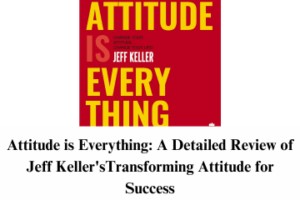Learnings from the book “7 Habits of highly effective people”
About 7 Habits of Highly Effective People
“The 7 Habits of Highly Effective People” is a self-help and business management book written by Stephen Covey and first published in 1989. The 7 Habits of Highly Effective People, has become a classic in the personal development and self-help genre, with its principles and teachings being widely popular and relevant even today. The book is based on the idea that people can change their lives and achieve greater success by changing their habits and adopting a set of principles that have been proven to work.
The first habit, “Be proactive,” is about taking initiative and being responsible for one’s own actions and decisions. Covey stresses that individuals must take control of the things that they can change, instead of being passive and reactive. He explains that by being proactive, individuals can identify and solve problems, and create opportunities for growth and success.
The second habit, “Begin with the end in mind,” is about setting clear and specific goals and having a plan to achieve them. Covey explains that individuals must have a clear vision of what they want to achieve and work towards it with purpose and focus. He stresses that by beginning with the end in mind, individuals can stay motivated and focused, and achieve their goals more effectively.
The third habit, “Put first things first,” is about prioritizing and managing time effectively. Covey explains that individuals must focus on the most important tasks and activities first, and avoid distractions and procrastination. He stresses that by putting first things first, individuals can use their time more effectively and achieve more in less time.
The fourth habit, “Think win-win,” is about developing an attitude of mutual benefit in relationships and interactions. Covey explains that individuals must seek mutually beneficial solutions and focus on shared goals and interests. He stresses that by thinking win-win, individuals can create positive and mutually beneficial relationships, both personally and professionally.
The fifth habit, “Seek first to understand, then to be understood,” is about effective communication and understanding others’ perspectives. Covey explains that individuals must actively listen and seek to understand others’ points of view, before communicating their own. He stresses that by seeking first to understand, individuals can improve their communication skills and build stronger relationships.
The sixth habit, “Synergize,” is about working effectively with others and creating a positive and collaborative environment. Covey explains that individuals must leverage the strengths and abilities of others to achieve shared goals. He stresses that by synergizing, individuals can create a positive and productive environment and achieve more than they could alone.
The seventh habit, “Sharpen the saw,” is about taking care of oneself physically, mentally, emotionally, and spiritually. Covey explains that individuals must invest in their own growth and development, and maintain a balance in all areas of life. He stresses that by sharpening the saw, individuals can improve their physical, mental, and emotional well-being, and achieve greater success in all areas of life.
Keynotes
- Be proactive: This habit is about taking initiative and being responsible for one’s own actions and decisions. It means identifying and taking control of the things that one can change, instead of being passive and reactive.
- Begin with the end in mind: This habit is about setting clear and specific goals and having a plan to achieve them. It means having a clear vision of what one wants to achieve and working towards it with purpose and focus.
- Put first things first: This habit is about prioritizing and managing time effectively. It means focusing on the most important tasks and activities first and avoiding distractions and procrastination.
- Think win-win: This habit is about developing an attitude of mutual benefit in relationships and interactions. It means seeking mutually beneficial solutions and focusing on shared goals and interests.
- Seek first to understand, then to be understood: This habit is about effective communication and understanding others’ perspectives. It means actively listening and seeking to understand others’ points of view, before communicating one’s own.
- Synergize: This habit is about working effectively with others and creating a positive and collaborative environment. It means leveraging the strengths and abilities of others to achieve shared goals.
- Sharpen the saw: This habit is about taking care of oneself physically, mentally, emotionally, and spiritually. It means investing in one’s own growth and development and maintaining a balance in all areas of life.
In conclusion, “The 7 Habits of Highly Effective People” is a classic self-help and business management book that offers a practical framework for achieving greater success and personal fulfillment. The book’s principles are timeless and relevant, and its teachings can be applied to both personal and professional life. The book is a valuable resource for anyone looking to improve their habits and achieve greater success
About the Author
Stephen Covey, the author of “The 7 Habits of Highly Effective People,” was an American educator, author, businessman, and keynote speaker. He was born on October 24, 1932, in Salt Lake City, Utah, and passed away on July 16, 2012. Covey was the co-founder of FranklinCovey, a global professional services firm that specialized in organizational leadership, effectiveness, and productivity. He wrote several bestselling books on personal development, leadership, and productivity, including “First Things First,” “The 8th Habit,” and “Principle-Centered Leadership.” Covey’s work has been widely recognized and has influenced millions of people around the world to improve their personal and professional lives.
Follow Reviewzade on Instagram for regular updates. Check here for more book reviews.




